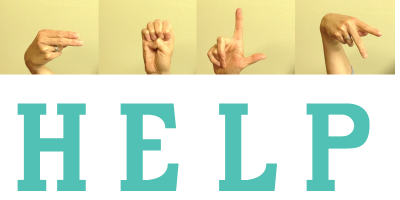
Stricter Eligibility Criteria for Seniors and People with Disabilities?
Politics is our way of life, whether we like it or not. It's what makes our country great. But it can also be frustrating and confusing. The state of Illinois is facing very difficult times. It is our politician's responsibility to create a yearly, balanced budget for our state. Just like at home, if overspending occurs, something must be cut to ensure that our home budget is balanced. The Illinois General Assembly (Republicans and Democrats), due to overspending for many years, have lost their ability to effectively balance our budget. They are currently proposing to make deep cuts to social services in our state, thinking that this will help balance the budget when, in fact, it will cost our state more. Rauner spokeswoman, Catherine Kelly, said in an email that the proposed cuts will free up resources to help the most vulnerable and grow the economy. This is not true. Our Politicians have lost sight of some of its priorities and what remains important to the people of Illinois.
What’s Happening?
As of this writing, the state is proposing austerity (tougher/more stringent) measures to balance our budget. Governor Rauner wants to toughen eligibility standards to limit the number of seniors and disabled people who qualify for home services, in which caretakers/personal assistants help individuals with a variety of activities of daily living. In order for people with disabilities, including senior citizens, to be eligible for the Home Services Program (HSP), the Community Care Program, or nursing facility placement a person must currently "score" at least a 29 on the Determination of Needs (DON) assessment. For those who use the Home Services Program, the assessment is done through the Department of Human Services-(DRS). The Home Service Program serves 30,000 people with disabilities ages 18-59 annually and the Community Care Program, through the Department on Aging, serves 76,000 seniors over the age of 60.
To help balance Illinois' budget, the Governor proposes to raise the DON eligibility score to 37. The effects of this change would be horrific! It would affect thousands of individuals; individuals who have had a stroke or brain injury, or someone who undergoes dialysis for kidney failure or any number of other serious conditions. Obviously, the Governor believes this change would save the state money....less people served, less state money spent. The reality is that less people served, more individuals in crisis. Their condition will deteriorate with no help and finally, when they are able to meet the DON score of 37, their condition will have reached the point that nursing home care is required, costing the state thousands more per person and costing the individual their independence. Other probable consequences would be increased hospitalizations, job loss as family are forced into caregiving, eviction, homelessness, and more.
The Governor and our legislators do not understand the Home Service Program or its eligibility process. And they do not understand the consequences of such a change. Preserving the DON threshold at 29 will continue to save the state thousands of dollars by giving people the chance to live in the community, where supports cost the state less. There are no alternative resources that can reasonably fill the gap in services this change will create.
DO YOU KNOW YOUR DON SCORE?
Is your score between 29 and 37? Will you be cut off from the services that help you survive when these changes take place? It is imperative to advocate for yourselves and for others who are critically in need of services.
If you do not know your DON score, you should contact the Department of Human Services-Office of Rehabilitation Services (DRS). If you need assistance you can also call LINC, Inc. at 618-235-9988 for help with obtaining your DON score or how to advocate against this change.
Department of Human Services-Office of Rehabilitation Services (DRS) Locator.
WHAT’s GOING TO HAPPEN NEXT?
Our legislators will vote on this change. If we do nothing, a 37 DON Score eligibility will become a reality and thousands will suffer. This effort will not help us move the needle either in terms of budget savings or Medicaid rebalancing. Instead, it will take us backward decades in our efforts to provide services within the community.
The voice of the people must be heard! It is our right and our responsibility to protect the services that not only ensure the basic civil rights of living within the community but also save our state money.
There is currently a bill, House Bill 972 Amendment 1, which would preserve the DON Score and prevent cuts in home services for thousands of people.
WHAT CAN YOU DO?
1. Share this post.
2. Sign this witness slip online http://my.ilga.gov/WitnessSlip/Create/85451?committeeHearingId=13274&LegislationId=85451&HCommittees9%2F5%2F2015-page=1&committeeid=0&chamber=H&nodays=30&_=1438882775078
More information about this bill is available at http://www.ilga.gov/legislation/99/HB/PDF/09900HB0972lv.pdf
*Credit given to these Individuals/Documents:
Illinois Request for a Renewal of the Illinois 1915(c) Home and Community-Based Services Waiver for Persons with Disabilities., Submitted by Access Living of Metropolitan Chicago, July 17, 2105. www.accessliving.org
Ann Ford, Executive Director of Illinois Network of Centers for Independent Living (INCIL), in Springfield, IL. annford@incil.org
Coalition of Citizens with Disabilities in Illinois, Springfield, IL. Melody Norton melody@ccdionline.org
Amber Smock, Director of Advocacy and External Affairs, Access Living in Chicago, IL.
Libby Oxenham, Independent Living Advocate for the Deaf and Hard of Hearing, Living Independently Now Center in Swansea, IL. (LINC, Inc.) loxenham@lincinc.org
Please contact us if you have any questions or concerns or if you want to contact your legislator but don't know how or what to say. We can help! Just call or email.
Libby Oxenham
LINC, Inc
15 Emerald Terrace
Swansea IL 62226
618-235-9988 Or Video Phone 618-310-0054
